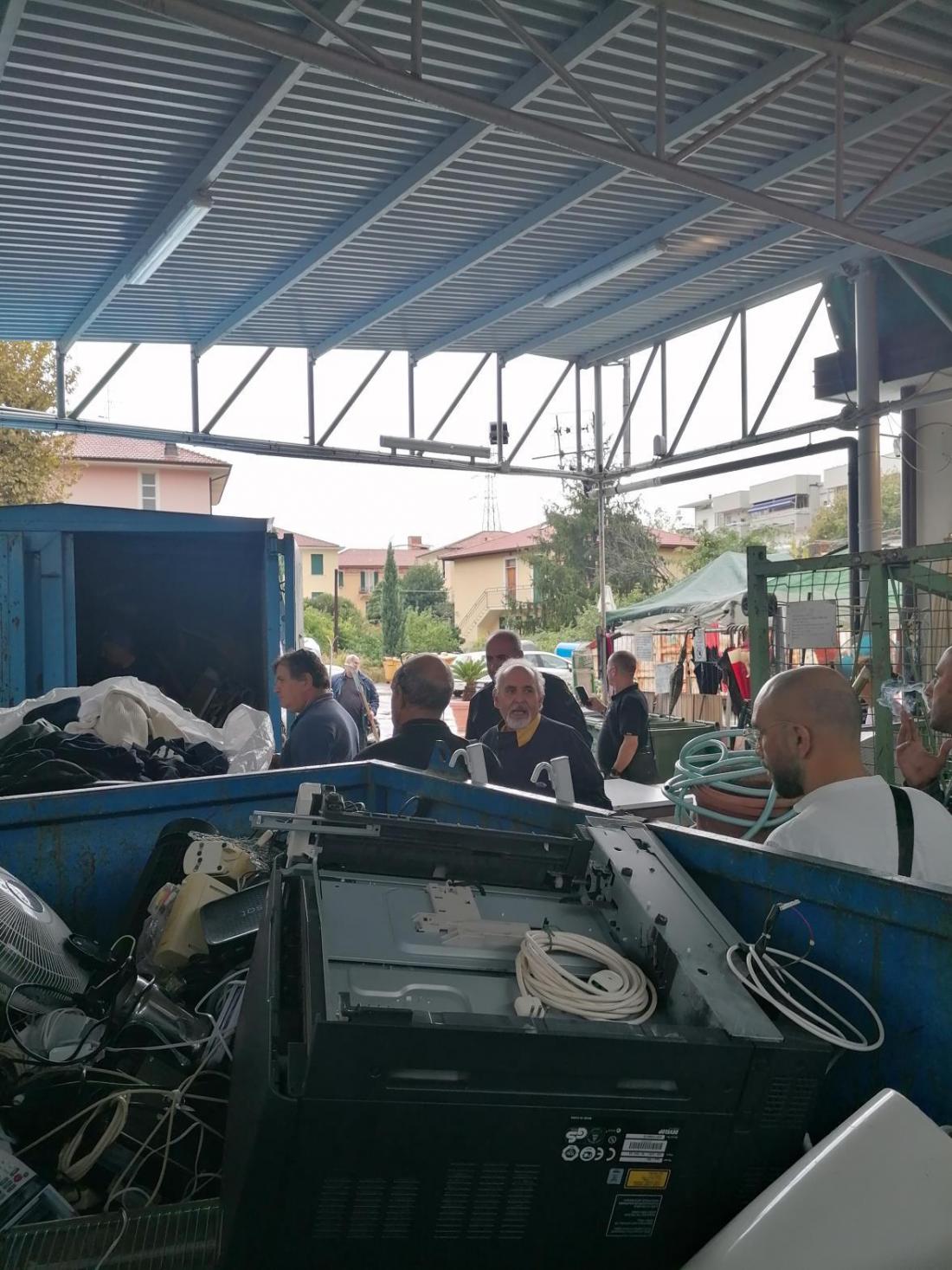Med4Waste: Jordanian municipal officials visit Sestri Levante, Italy to learn about the introduction of the Pay As You Throw Waste Management system

On 20-21 September 2023 two delegations headed by the Mayor of Byrain and the Secretary General of M’Saken (Jordan) visited Sestri Levante (Italy) in the framework of the Med4Waste project mentoring scheme, led by MedCities. This scheme includes a twinning and exchange programme with a city from another ENI CBC Med project that has implemented a solution to enhance its waste management system. In this case, Sestri Levante, as part of the ENI CBC Med CLIMA project, has developed an Integrated Waste Management Plan through a participatory process and has implemented the pay as you throw (PAYT) tax and related advocacy.
On the first day, the colleagues from Sestri Levante introduced the waste management system in Italy, with a particular focus on the particularities of the municipal waste management plan of the town and the impact of the CLIMA project.
Sestri Levante has around 18.500 inhabitants and produces 12.000 tons of waste per year. Waste management costs citizens 2,4 million EUR per year.
The town combines 3 types of waste collection depending on the particularities of the territory:
- The historical centre has a roadside collection with large recycling containers equipped with electronically opened cash registers.
- The residential zone of the town has a door-to-door collection system.
- The collinear zone has a collection system through micro-containers with differentiated bins for waste type.

The municipality has implemented the PAYT in the residential zone (door-to-door collection) thanks to the support of the CLIMA project. The PAYT system requires a complex monitoring system to control the generation of waste via GPR/GPRS. Each family unit/business has a bar code in their bags that identifies their waste. All citizens (residents, second-residence citizens, businesses) pay a yearly basic tax rate for waste management. The tools to monitor and measure waste production are the bags distributed to collect non-recyclable waste. With the basic tariff, each family unit/citizen obtains a specific number of 40-litre bags to dispose of non-recyclable waste. If during the year you dispose of more bags than you were given, you will pay an extra tariff accordingly. The municipality can also issue fees to citizens not properly recycling, which goes from 50 to 300 EUR.
A key to the success of the implementation of the PAYT is communication: building trust and conceiving mutual goals with the population. It is essential to not only inform but also involve citizens during the whole process; since the inception of the project, the design of the system and monitoring its implementation. Organising regular open meetings for citizens is essential. Environmental education in primary local schools is key. Thanks to the CLIMA project, the municipality also developed different audio-visual products (videos, flyers, etc.) to tackle the implementation of the PAYT system.
Participants had the opportunity to visit the collection and sorting facility of the municipality, to learn in detail how the monitoring system works, and the reuse centre, where citizens can donate non-recyclable products to give them a second life. The centre, owned by the municipality, is run by volunteers.

Participants also learnt about the food recovery network in Genova and Sestri Levante: their legal framework and their functioning via public and private partnerships. A representative from the Ricibo network shared their experience dealing with food recovery and poverty. The network was born in 2017 to coordinate the work of more than 220 organisations dealing with food recovery and distribution to people suffering economic difficulties. Every year almost 10,000 tons of food are wasted in the city, and more than 20,000 people are in a situation of poverty. The creation of the network was a concrete response from city organisations, both secular and religious, which came together to strengthen the impact of the actions of food recovery and distribution among people in need. In particular, they have created the BringTheFood application to coordinate and monitor food recovery donations in the city. As a result, participants visited a recovered distribution centre, Spreco Zero, which opened thanks to the Ricibo network, as it united the work of 4 very small, local associations that didn’t have a space to distribute the food (punto di distribuzione). Thanks to this, in the last 6 months they recovered more than 2.000 kg of food valued at 12.000 EUR.










